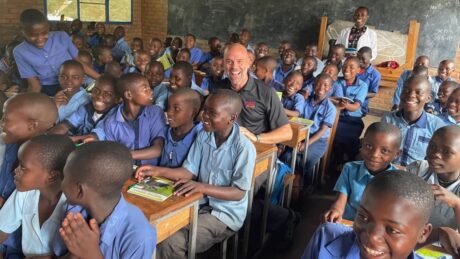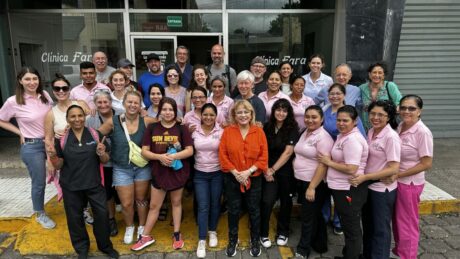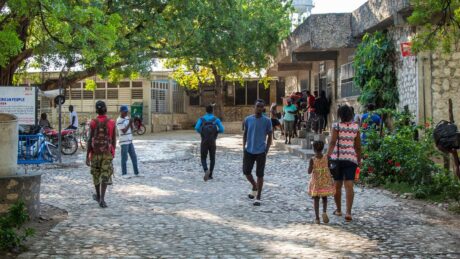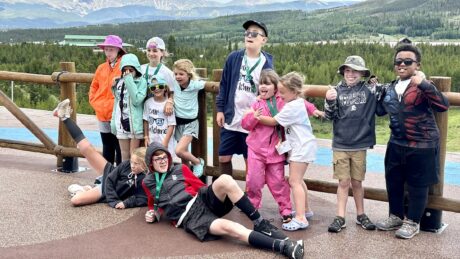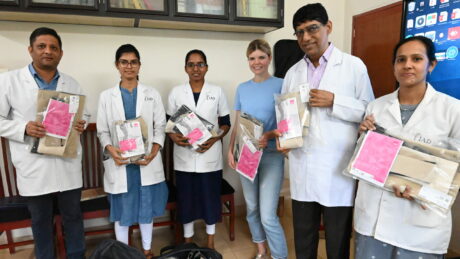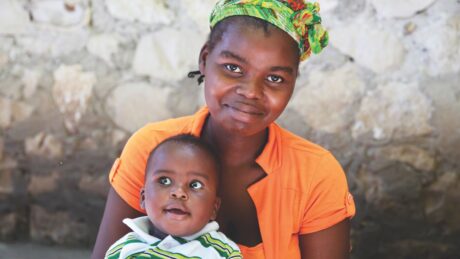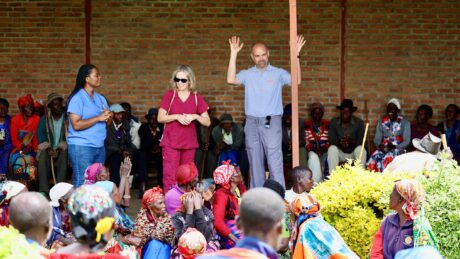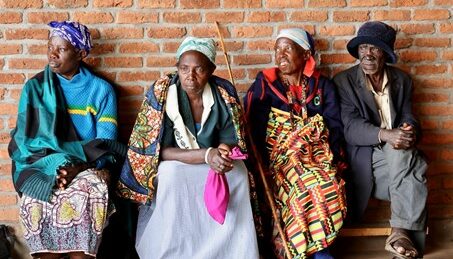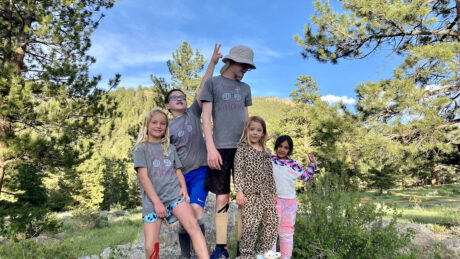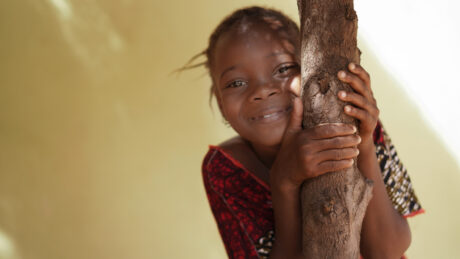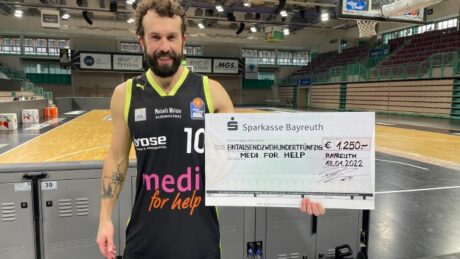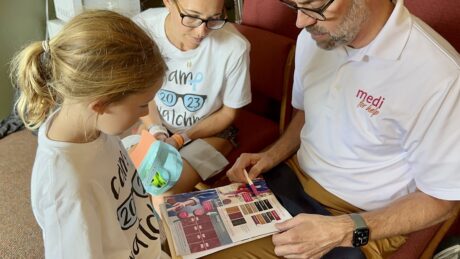
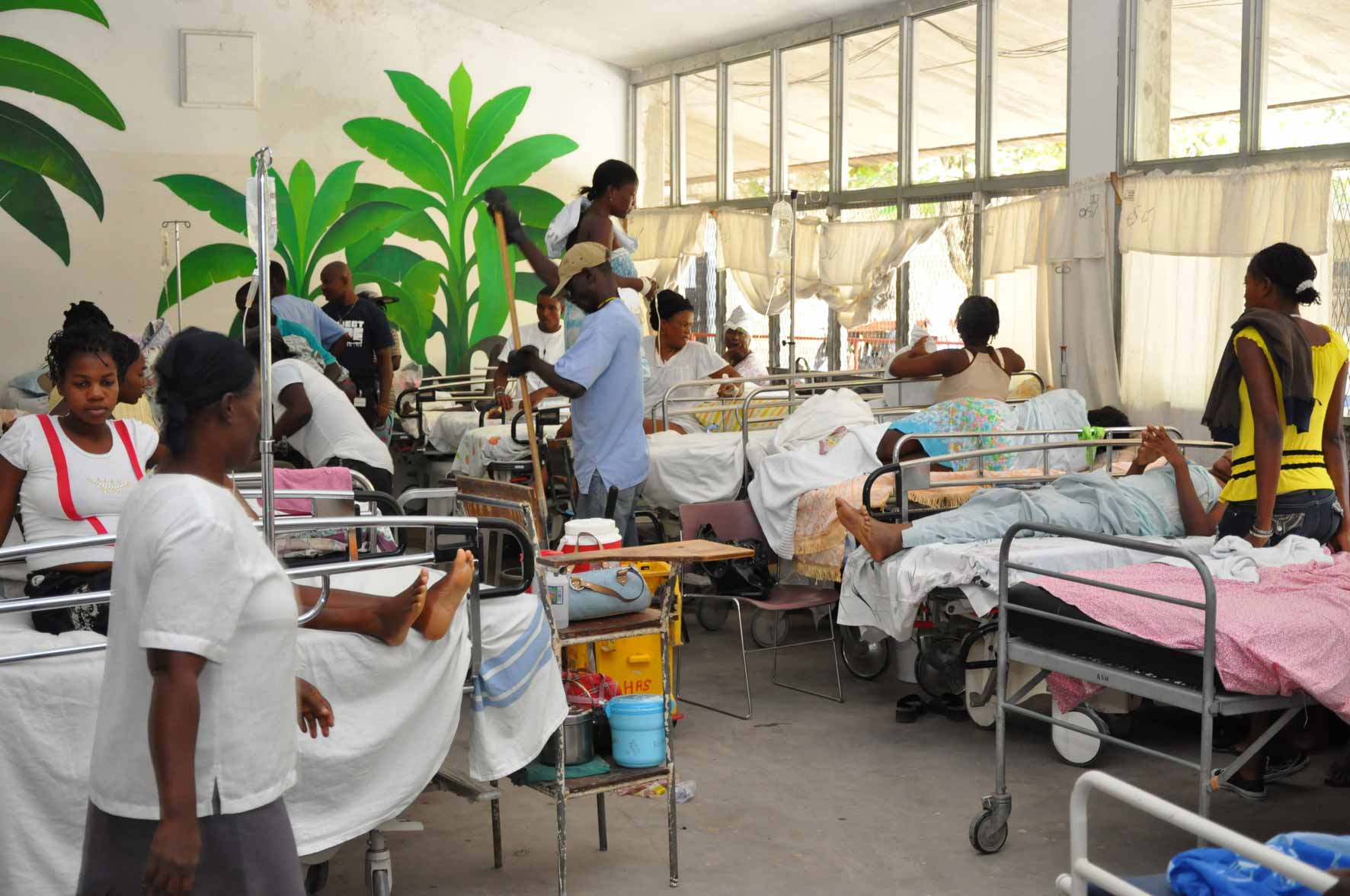
medi for help is currently active in Haiti, India, Nicaragua, Ruanda and USA.
When caring for patients on site, we maintain close partnerships and appreciate
the good and trusting cooperation. Only together can patient care be
advanced successfully. We make sure that our partners also
operate in the non-profit sector, are established locally and have
experience in our core competencies.
Hôpital Albert Schweitzer (HAS) in Deschapelles, Haiti
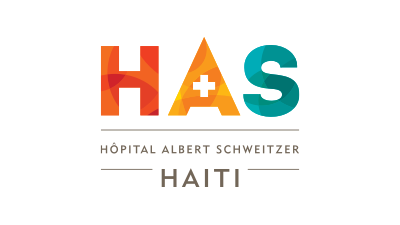
The hospital, with over 400 mostly Haitian employees, focuses on obstetrics, malnutrition and surgery. It is the only full-service hospital and has served more than 350,000 people since its inception. Approximately 2,300 patients are treated every month.
At a glance
68 Years
Founded in 1956
+ 400
Employees
+ 25,000
Patients/year
Activities
Since the medi for help care center was founded, more than 6,000 Haitians have been fitted with aids and over 1,500 new fittings with orthoses were made, plus more than 650 adjustments. As an example, in cooperation with a local partner, an off-road vehicle was purchased to serve as a “mobile clinic” for providing care to patients from more distant regions. The construction of a second workshop in Port-au-Prince is also a great relief for the residents of the capital, who previously needed to drive about three hours to reach the clinic. medi for help is now also providing compression supplies in Haiti and providing support in the treatment of chronic wounds and lymphatic system diseases. Problem: The political unrest, storms, and the lack of infrastructure in the country make the overall conditions extremely difficult.
Outlook
In Haiti, life is concentrated in villages and centers – motorized traffic is increasing, and with it comes more accidents. For that reason, an expansion of trauma surgery capacities is planned, to be supported by the non-profit organization Swiss Partnership HAS Haiti (SPHASH). This increases the need for additional in-kind donations, such as orthopedic products.
Institute of Applied Dermatology (IAD) in Kasaragod, India
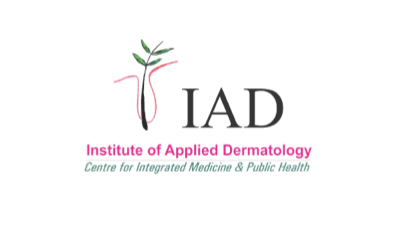
The Institute of Applied Dermatology (IAD), a non-profit research organization, focuses on treating lymphatic diseases, especially lymphatic filariasis. Approximately 350 patients – 30 percent of them emergency patients – are treated annually. The integrative, holistic treatment approach combines supportive bandaging, yoga and Ayurveda. This is complemented by self-management workshops for patients in villages all over India. Having 75 percent of patients who pay for treatment allows very poor patients to be treated free of charge.
At a glance
25 years
Founded in 1999
+ 30
Employees
350
Patients/year
Activities
medi for help provides support both financially and with aids, mainly to ensure care for those patients who cannot afford treatment.
Due to the current corona situation, the IAD faces additional challenges. To be able to pay the employees’ salaries and thus continue to provide patient care, medi for help provides additional financial assistance.
Outlook
The focus is on expanding active support that allows people to help themselves – this is aimed primarily at patients in remote villages who lack access to medical care. The experience gained and best practices from providing support in Haiti will also be applied in India in the future.
Background information about lymphatic filariasis
Lymphatic filariasis is a widespread disease in tropical regions. The parasite, a roundworm, is transmitted by infected mosquitoes and settles in the lymphatic vessels. Many people become infected with lymphatic filariasis in early childhood. If the course is severe, massive swelling of the legs, and sometimes of the arms and genitals, can occur. To avoid additional bacterial infections, this chronic swelling – called lymphedema – requires a hygienic environment and regular skin care. Odema should be relieved with compression therapy to alleviate the patient’s difficulties.
Although around 120 million people are affected by lymphatic filariasis, it remains a neglected tropical disease. These diseases afflict the poor tropical regions, where access to adequate medical care and hygiene standards are usually lacking.
Lymphatic filariasis is one of the five most widespread neglected and poverty-related diseases, which make up around 90 percent of neglected tropical diseases (NTDs). (1)
medi for help is consciously tackling this issue head-on to help the people affected. The physical symptoms can lead to impairment in daily life and even to social exclusion. (1)
Over the past ten years, medi for help in Haiti has gained valuable experience in treating patients with lymphatic filariasis in tropical climates. The problem: Severe poverty in the country, the lack of a health system, and patients’ shame in seeking help for their illness make treatment more difficult.
(1) https://dntds.de/was-sind-ntds.html (Last access: 27.08.2021)
Heart and Sole Africa (HASA) in Rwanda
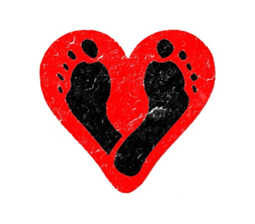
The non-profit organization Heart and Sole Africa has been active in the fight against podoconiosis in Rwanda since 2009. At more than eleven locations throughout the country, it provides support with education and hygiene equipment to combat and prevent the chronic disease. Through cooperation with partner clinics, such as the St. Vincent Children and Family Centre in Musanze, a successful prevention and treatment program for patients with podoconiosis has been developed.
At a glance
15 Years
Founded in 2009
+ 10
Employees
+ 100
Patients/year
Activities
medi for help has been working in partnership with Heart and Sole Africa since 2022. The common goal is to gain trust locally and to adequately educate young people and sufferers and their families about podoconiosis. In addition to hygiene measures and wound care, the treatment of all patients requires multi-stage, permanent compression of the lower extremities: Lymph flow must be promoted and swelling reduced.
Outlook
To this end, medi for help is systematically establishing a comprehensive compression management system in Rwanda. This includes the appointment of a compression manager with accompanying further training and the expansion of a shoe workshop including training for technical specialists on site. After all, sustainable compression therapy can only be carried out successfully in the long term with functioning footwear. Unfortunately, this is not the case in 90 percent of cases.
Background knowledge on podoconiosis
The chronic tropical disease podoconiosis is also known as non-filarial lymphoedema. The symptoms of this non-contagious form of elephantiasis include extreme tiredness, bilateral swelling of the legs with asymmetrical development, skin discoloration and lump formation on the toes and feet. Find out more about Podoconiosis here.
